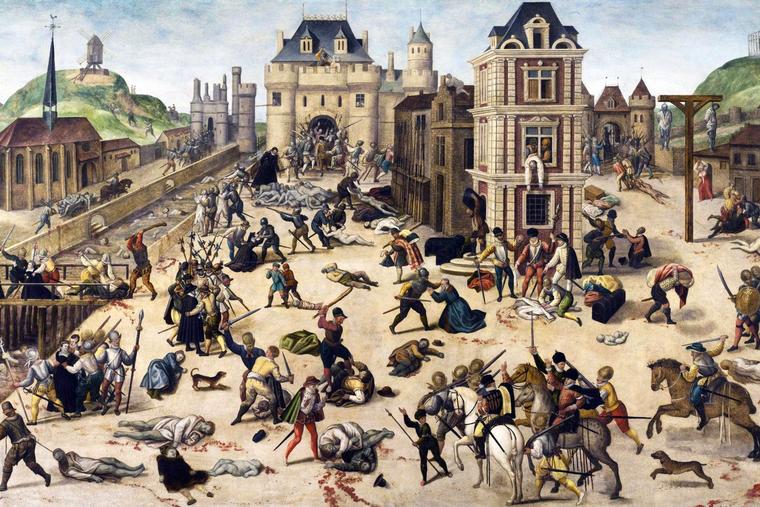- Feb 5, 2002
- 166,616
- 56,252
- Country
- United States
- Faith
- Catholic
- Marital Status
- Married
- Politics
- US-Others
The nearly universal belief in the Middle Ages and up to at least the mid-17th century was that heresy was more dangerous than even murder.
Mass killings based on heretical beliefs or harmfully “seditious/treasonous” (including peaceful) ones were not solely a Catholic phenomenon, and neither side can claim a triumphant moral superiority. It’s a “wash.”
Protestants engaged in religious persecution just as fiercely, if not more so, than Catholics had (and very often against each other). But they just happened to come along later in history and were around only 130-150 years before the time when both sides rapidly started deciding that all of this should stop. So we don’t have the many hundreds of years of “scandalous” Protestant “horror stories.”
was a general characteristic of the age, which is why virtually everyone participated in it. In time — after about 130 years of Catholic vs. Protestant religious wars (1521-1651 or so) — people figured out that religious persecution was inadvisable and a non-starter. Virtually no one believes in it anymore. What I find objectionable is when Protestants try to imagine a fictitious, idealized, “scrubbed clean” past and argue that the early Protestants were — by nature — more tolerant of other viewpoints than Catholics were, and that they were basically proponents of religious freedom over against Catholics.
The nearly universal belief in the Middle Ages and up to at least the mid-17th century — and it does make sense — was that heresy was more dangerous than even murder, because it could cause people to be damned and go to hell; therefore, heretics ought to be persecuted at least as much as murderers. It was a sincere concern for the well-being of society and for souls (a thing few seem to even consider when condemning it). It usually had a good motivation, at least in theory, and a spiritual rationale beyond mere bloodthirstiness and grabs for power. And there is a surprisingly strong case that can be made for it from the Bible, that we must understand if we are ever to comprehend why these seemingly scandalous and sinful things happened in Church history.
Continued below.

How to Understand Past Attitudes Toward Violence
The nearly universal belief in the Middle Ages and up to at least the mid-17th century was that heresy was more dangerous than even murder.
